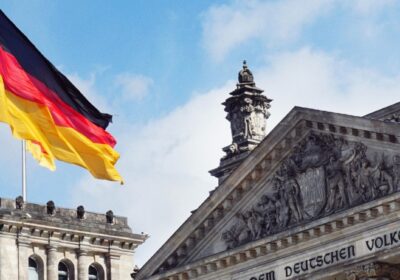ESL RIVINGTON et Antidox sont heureux d’avoir convenu un partenariat avec The Ambassador Partnership, cabinet de conseil britannique réputé, et composé d’anciens ambassadeurs spécialistes de la résolution de conflits et experts en risques politiques (www.ambassadorllp.com).
In our Christmas Message a year ago we warned that 2024 could be an even more bare-knuckle ride than 2023. How correct we were! It is now a commonplace for commentators to note that geopolitics – that is international relations, as influenced by geographical factors – are more unstable, and the world more dangerous, than it has been for a generation. And events keep on proving them correct.
2024 was, above all, the year of elections. About half of the world’s population voted in national or wider regional elections. The results varied from the entirely predictable – a massive win for Vladimir Putin in the Russian Presidential elections – to the very uncertain – in particular the results of the US Presidential elections which elected Donald Trump to the Presidency for the second time. Among the more predictable results were the election of a Labour Government with a huge majority in the UK, and the election of Prabowo Subianto to the Presidency in Indonesia. However, there were also considerable surprises – for instance, the failure of Narendra Modi to secure a majority in the Indian elections, and, indeed, that President Macron decided to call a snap election, with the predictable result of parliamentary deadlock. Some elections marked real political change, such as the ANC losing it majority in South Africa, whereas others failed to resolve long-running issues or to provide stability, including those in Pakistan, Iran and Japan.
The main lessons of the elections seem to be that in developed countries far right parties increased their appeal to the electorates, and their involvement in mainstream politics; and that governing parties, whether of centre right or centre left did not do well – people wanted change. The common thread between these two is that in almost all democracies electorates are unhappy with their governments which do not seem to be able to grapple at all successfully with the complex problems besetting them – fostering growth, addressing climate change, dealing with conflict and mass migration (often linked), reducing inequality, eliminating corruption, and, at a basic level, providing their populations with a decent standard of living, a job they feel is worth doing, and a stake in their own societies. The gap between rich and poor inside countries continues to grow. This disillusionment is a happy hunting ground for extremists of left and right, and continues to lead to a fracturing of society, both politically and socially. The elections in 2024 were often divisive, disputational events, with little policy content, and, too often, with populations tired of politics and politicians choosing the least bad option, rather than being inspired to support a more constructive way forward.
Whether electorates appreciate this or not, much of their disillusionment has its roots in geopolitics long-term trends, in particular the West having dealt rather ham-fistedly with both its victory in the Cold War and the inexorable rise of Chinese power; and the more immediate consequences of such trends, such as the war in Ukraine and tension over Taiwan and the South China Sea; plus the economic and social consequences of these situations, in particular, the gradual unravelling of the globalised economy established since the fall of the Berlin Wall in 1989, and the disruption to supply lines and the mass migration caused by wars. Add to this the consequences of two other global phenomena – climate change and a pandemic – and it is perhaps not surprising that the disillusionment is widespread.
2024 was a year in which many of these trends appeared to be coming to a head. The war in Ukraine is about to enter its third year, with both sides facing exhaustion in a war of attrition where the immediate objective of each appears to be to make minor progress on the battlefield to improve their hand in negotiations which some hope, some fear, will come in 2025. Both sides are looking at Trump and hoping that the uncertainty he brings will benefit them.
At the same time, the Near East is in increasing chaos. The trauma of Hamas’ slaughter of Israelis and the taking of hostages on 7 October 2023 has led to further slaughter and complete destruction in Gaza, destruction and killing in Lebanon in order to try to tame Hezbollah, and, to a degree, to the humbling of Iran. However, none of this is bringing Israel any nearer to the security it craves. And now armed factions in Syria have suddenly and unexpectedly taken the chance to finally oust the Assad regime after 13 years of civil war and 58 years in power. This is a serious political blow to both Iran and Russia, each with major distractions elsewhere. However, whether this leads to the factions in Syria coming together to govern peacefully – and being allowed to do so without interference from outside powers; or whether the factions will now have their own fights for power, supported by differing outside powers, as occurred in Iraq and Libya, is unknown.
Meanwhile, the calamitous civil war in Sudan goes largely unreported, despite it having caused the world’s worst humanitarian disaster; along with the continuing jihadist fighting across West Africa. And South Korea has just been thrown into political chaos – by its own President.
This is the unpropitious background to potentially the most significant event of 2024, the advent of a new Trump Presidency. There are legitimate concerns about how far Trump, with Congress and the Supreme Court largely tamed, will further undermine the institutions of American democracy. This matters for the US but also for the rest of the world, given America’s self-proclaimed leadership of the “free world”. More immediate are concerns about the global effects of Trumpian economics – both the inflationary effects of even looser fiscal policy and tariff wars and the effects of these tariff wars on global trade. And then there is the whole uncertainty surrounding Trump’s foreign policy. Will it continue to be transactional, despising alliances and doing deals with hostile countries? Will support for Israel lead to further violence in the Middle East, perhaps even an attack on Iran’s nuclear facilities? Will Trump force a settlement of the Ukraine war, if so on whose terms? Or will he just withdraw American military aid from Ukraine, leaving Europe to deal with it as it will?
All of this leaves Europe in a perilous position. Ukraine will require large-scale financial and military support if American support is reduced and a negotiated end to the war – or a stalemate – on Russian terms is to be avoided. Either of these outcomes would require further increases in defence budgets, to provide credible security guarantees to Ukraine and the Baltic States in the face of an emboldened Russia. At the same time, growing conflict in the Near East and Africa risks further waves of illegal migrants flooding into Europe, giving further grist to the right-wing mill.
The large European countries have neither the fiscal headroom nor the leadership to address these issues while at the same time addressing their populations’ concerns about jobs, the cost of living and public services. The European economy is not in good health. Both the French and the German Governments have just fallen, both over fiscal policy. Their replacements are likely to also be weak, given that their parliaments will probably remain polarised. The Poles will be consumed by a crucial Presidential election in mid-2025; and the British Government, although with a large majority, will struggle to grow the economy and thus fund its domestic and international commitments. None are prepared to admit the gravity of the crisis they face, and to put in place the decisive collective action needed to head off the dangers.
Unfortunately, this is far from an optimistic Christmas message. The world is in a fragile state, whether looked at politically, economically or socially. It is little wonder that geopolitics is thrusting itself into the attention of every politician, businessman and investor. However, we hope that you manage to extract yourself from such concerns over the Christmas and New Year period, enjoy the pleasures of family and friends over this time, and return with vigour to face the challenges of 2025, which is looking like another challenging year!
Publié par The Ambassador Partnership le 19/12/2024
Par Peter Collecott CMG et Richard Schiffer





